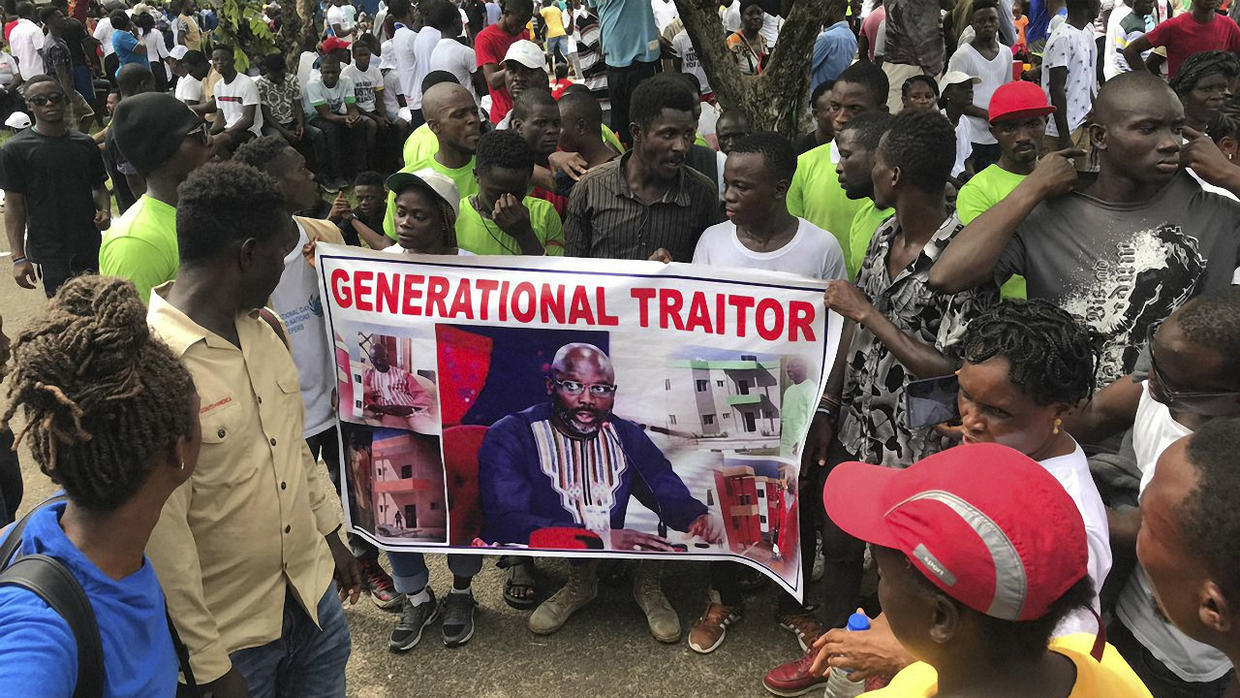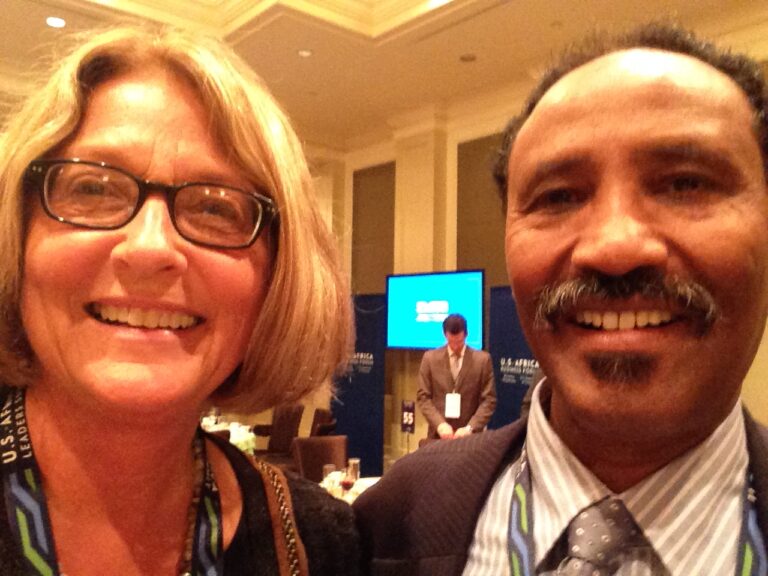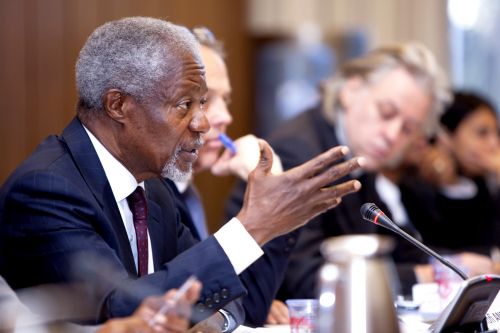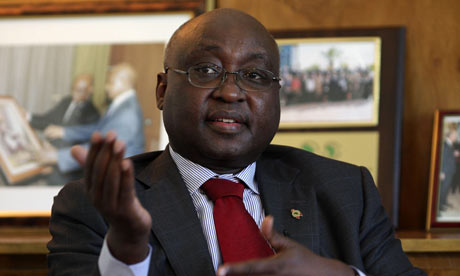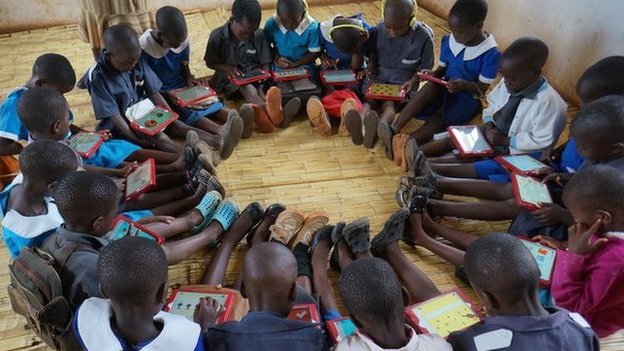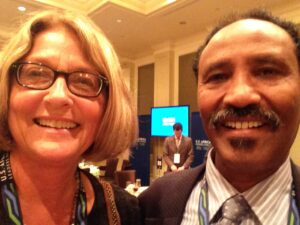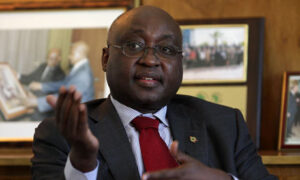Chinese mine operators accused of violating regulations in west African country.
[caption id="attachment_37666" align="alignleft" width="300"]

An increase in illegal mining in Ghana has triggered a spat between Accra and Beijing © VCG/Getty Images[/caption]
Ghana’s push to crack down on illegal gold mining is winning praise from the public but inflaming tensions with China, its biggest trading partner.
High quality global journalism requires investment. Please share this article with others using the link below, do not cut & paste the article.
Beijing is accused by advocacy groups — and increasingly by the Ghanaian government — of standing by while its citizens break laws as they drive a boom in small-scale mining that began more than five years ago when gold prices were soaring. More than a third of the country’s 2.7m ounces of production last year came from small mines, up from less than a quarter before the boom. In many cases the mines are officially owned by Ghanaians who have the correct permits but in practice are run by Chinese businessmen who are violating regulations in their attempt to extract gold as quickly as possible, according to government officials and local experts.
President Nana Akufo-Addo, who took office in January, has pledged that no particular group or nationality will be targeted as the government attempts to reign in a variety of mining practices it says are illegal. But some of his ministers are singling out Chinese miners for using practices that are damaging protected forests and cocoa farms, and polluting rivers. What had been a minor social and environmental issue for decades, officials say, spiralled out of control after Chinese miners flocked to the west African nation during the boom, bringing with them machinery and heavy equipment.
High quality global journalism requires investment. Please share this article with others using the link below, do not cut & paste the article.
“It’s alarming. Before, the locals were not using sophisticated tools but now they have heavy equipment,” Kwabena Frimpong Boateng, the environment minister, told Financial Times. As he spoke he flipped through photos of floating machinery atop muddy brown waters and pointed to Chinese characters printed on one piece of equipment, citing it as evidence of the problem. Accra issued an “ultimatum” to illegal miners to stop or face the force of law last month, and began arresting Chinese miners and their Ghanaian counterparts. Some Chinese nationals were charged with violating immigration laws.
Mr Boateng said the problem was exacerbated because the previous government had failed to police the mining sector effectively and curb the expansion of small-scale mining using heavy equipment. “Because of neglect in enforcing the rules, people have become [more] emboldened,” he said. “They are doing this on a very, very large scale and with the help of the Chinese.” The government’s tough talk followed a wave of negative coverage of Chinese mining practices in the Ghanian media. The reporting was at times xenophobic and prompted rare public criticism from the Chinese embassy this month. Sun Baohong, China’s ambassador in Accra, urged the Ghanaian government to “guide the media” to cover the issue more “objectively,” or risk damaging the “environment for further development of our bilateral exchanges and co-operation”.
Mr Akufo-Addo responded by saying in a speech that the law “affects everybody including the Chinese”. Illegal gold panners at work in Kibi, southern Ghana, in early April © AFP “All I am saying is they should respect the laws of the land just as they do theirs,” he said. The public spat highlights a complex relationship between China and African states mirrored in many resource-rich nations across the continent. Accra’s ties with Beijing have been richly rewarded: trade between the two countries hit $6bn in 2015, up from just $100m in 2000. As Ghana plunged into economic crisis after commodities prices crashed in 2014, Beijing continued to trumpet Accra as a destination for its investors.
“Chinese enterprises still have confidence in Ghana’s market,” the embassy in Accra said in 2015 after the country was forced to agree an bailout from the International Monetary Fund. The public anger over mining now risks overshadowing the economic partnership. It has also cast a negative light on Ghanaian authorities. Though the practice of Ghanaians fronting for Chinese partners who bring capital and equipment is no secret, successive governments have done little to halt it, says Hannah Owusu-Koranteng, co-founder of Wacam, a Ghanaian environmental rights organisation.
High quality global journalism requires investment. Please share this article with others using the link below, do not cut & paste the article.
“It’s as if anybody coming in to Ghana [for mining] has a field day,” she says. “This is failure of the state to regulate, of state institutions to supervise.” Steve Manteaw, director of the Integrated Social Development Centre, another local group, said licensing loopholes exploited in recent years may be difficult to close. “We may want to resort to law enforcement but at the end of the day we need a land use policy to deal with this unhealthy contestation between mining and agriculture.”
But for some Ghanians in impoverished rural areas, illegal mining has become an economic lifeline. In Kibi, Mr Akufo-Addo’s hometown in southern Ghana, dozens of young men hack away at the land, clearing it to prospect for gold. Holding a metal detector he was given by his “boss”, Abdoulaye, 30, has no plans to leave. “This is my work.” He and other miners would not say if the businessmen who supplied their equipment were foreigners. But they were unanimous in saying mining was their only means of earning a living.
“Illegal mining is a symptom of an underlying issue: unemployment,” said Baba Adongo, country director of TechnoServe, which works with farmers on sustainability. “Even if the crackdown happens, there is no safety valve for these young people. They will still go in there [and mine].”
*Foreign Times
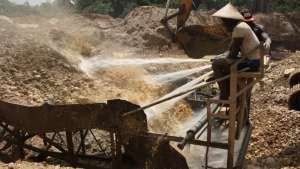 An increase in illegal mining in Ghana has triggered a spat between Accra and Beijing © VCG/Getty Images[/caption]
Ghana’s push to crack down on illegal gold mining is winning praise from the public but inflaming tensions with China, its biggest trading partner.
High quality global journalism requires investment. Please share this article with others using the link below, do not cut & paste the article.
Beijing is accused by advocacy groups — and increasingly by the Ghanaian government — of standing by while its citizens break laws as they drive a boom in small-scale mining that began more than five years ago when gold prices were soaring. More than a third of the country’s 2.7m ounces of production last year came from small mines, up from less than a quarter before the boom. In many cases the mines are officially owned by Ghanaians who have the correct permits but in practice are run by Chinese businessmen who are violating regulations in their attempt to extract gold as quickly as possible, according to government officials and local experts.
President Nana Akufo-Addo, who took office in January, has pledged that no particular group or nationality will be targeted as the government attempts to reign in a variety of mining practices it says are illegal. But some of his ministers are singling out Chinese miners for using practices that are damaging protected forests and cocoa farms, and polluting rivers. What had been a minor social and environmental issue for decades, officials say, spiralled out of control after Chinese miners flocked to the west African nation during the boom, bringing with them machinery and heavy equipment.
High quality global journalism requires investment. Please share this article with others using the link below, do not cut & paste the article.
“It’s alarming. Before, the locals were not using sophisticated tools but now they have heavy equipment,” Kwabena Frimpong Boateng, the environment minister, told Financial Times. As he spoke he flipped through photos of floating machinery atop muddy brown waters and pointed to Chinese characters printed on one piece of equipment, citing it as evidence of the problem. Accra issued an “ultimatum” to illegal miners to stop or face the force of law last month, and began arresting Chinese miners and their Ghanaian counterparts. Some Chinese nationals were charged with violating immigration laws.
Mr Boateng said the problem was exacerbated because the previous government had failed to police the mining sector effectively and curb the expansion of small-scale mining using heavy equipment. “Because of neglect in enforcing the rules, people have become [more] emboldened,” he said. “They are doing this on a very, very large scale and with the help of the Chinese.” The government’s tough talk followed a wave of negative coverage of Chinese mining practices in the Ghanian media. The reporting was at times xenophobic and prompted rare public criticism from the Chinese embassy this month. Sun Baohong, China’s ambassador in Accra, urged the Ghanaian government to “guide the media” to cover the issue more “objectively,” or risk damaging the “environment for further development of our bilateral exchanges and co-operation”.
Mr Akufo-Addo responded by saying in a speech that the law “affects everybody including the Chinese”. Illegal gold panners at work in Kibi, southern Ghana, in early April © AFP “All I am saying is they should respect the laws of the land just as they do theirs,” he said. The public spat highlights a complex relationship between China and African states mirrored in many resource-rich nations across the continent. Accra’s ties with Beijing have been richly rewarded: trade between the two countries hit $6bn in 2015, up from just $100m in 2000. As Ghana plunged into economic crisis after commodities prices crashed in 2014, Beijing continued to trumpet Accra as a destination for its investors.
“Chinese enterprises still have confidence in Ghana’s market,” the embassy in Accra said in 2015 after the country was forced to agree an bailout from the International Monetary Fund. The public anger over mining now risks overshadowing the economic partnership. It has also cast a negative light on Ghanaian authorities. Though the practice of Ghanaians fronting for Chinese partners who bring capital and equipment is no secret, successive governments have done little to halt it, says Hannah Owusu-Koranteng, co-founder of Wacam, a Ghanaian environmental rights organisation.
High quality global journalism requires investment. Please share this article with others using the link below, do not cut & paste the article.
“It’s as if anybody coming in to Ghana [for mining] has a field day,” she says. “This is failure of the state to regulate, of state institutions to supervise.” Steve Manteaw, director of the Integrated Social Development Centre, another local group, said licensing loopholes exploited in recent years may be difficult to close. “We may want to resort to law enforcement but at the end of the day we need a land use policy to deal with this unhealthy contestation between mining and agriculture.”
But for some Ghanians in impoverished rural areas, illegal mining has become an economic lifeline. In Kibi, Mr Akufo-Addo’s hometown in southern Ghana, dozens of young men hack away at the land, clearing it to prospect for gold. Holding a metal detector he was given by his “boss”, Abdoulaye, 30, has no plans to leave. “This is my work.” He and other miners would not say if the businessmen who supplied their equipment were foreigners. But they were unanimous in saying mining was their only means of earning a living.
“Illegal mining is a symptom of an underlying issue: unemployment,” said Baba Adongo, country director of TechnoServe, which works with farmers on sustainability. “Even if the crackdown happens, there is no safety valve for these young people. They will still go in there [and mine].”
*Foreign Times
An increase in illegal mining in Ghana has triggered a spat between Accra and Beijing © VCG/Getty Images[/caption]
Ghana’s push to crack down on illegal gold mining is winning praise from the public but inflaming tensions with China, its biggest trading partner.
High quality global journalism requires investment. Please share this article with others using the link below, do not cut & paste the article.
Beijing is accused by advocacy groups — and increasingly by the Ghanaian government — of standing by while its citizens break laws as they drive a boom in small-scale mining that began more than five years ago when gold prices were soaring. More than a third of the country’s 2.7m ounces of production last year came from small mines, up from less than a quarter before the boom. In many cases the mines are officially owned by Ghanaians who have the correct permits but in practice are run by Chinese businessmen who are violating regulations in their attempt to extract gold as quickly as possible, according to government officials and local experts.
President Nana Akufo-Addo, who took office in January, has pledged that no particular group or nationality will be targeted as the government attempts to reign in a variety of mining practices it says are illegal. But some of his ministers are singling out Chinese miners for using practices that are damaging protected forests and cocoa farms, and polluting rivers. What had been a minor social and environmental issue for decades, officials say, spiralled out of control after Chinese miners flocked to the west African nation during the boom, bringing with them machinery and heavy equipment.
High quality global journalism requires investment. Please share this article with others using the link below, do not cut & paste the article.
“It’s alarming. Before, the locals were not using sophisticated tools but now they have heavy equipment,” Kwabena Frimpong Boateng, the environment minister, told Financial Times. As he spoke he flipped through photos of floating machinery atop muddy brown waters and pointed to Chinese characters printed on one piece of equipment, citing it as evidence of the problem. Accra issued an “ultimatum” to illegal miners to stop or face the force of law last month, and began arresting Chinese miners and their Ghanaian counterparts. Some Chinese nationals were charged with violating immigration laws.
Mr Boateng said the problem was exacerbated because the previous government had failed to police the mining sector effectively and curb the expansion of small-scale mining using heavy equipment. “Because of neglect in enforcing the rules, people have become [more] emboldened,” he said. “They are doing this on a very, very large scale and with the help of the Chinese.” The government’s tough talk followed a wave of negative coverage of Chinese mining practices in the Ghanian media. The reporting was at times xenophobic and prompted rare public criticism from the Chinese embassy this month. Sun Baohong, China’s ambassador in Accra, urged the Ghanaian government to “guide the media” to cover the issue more “objectively,” or risk damaging the “environment for further development of our bilateral exchanges and co-operation”.
Mr Akufo-Addo responded by saying in a speech that the law “affects everybody including the Chinese”. Illegal gold panners at work in Kibi, southern Ghana, in early April © AFP “All I am saying is they should respect the laws of the land just as they do theirs,” he said. The public spat highlights a complex relationship between China and African states mirrored in many resource-rich nations across the continent. Accra’s ties with Beijing have been richly rewarded: trade between the two countries hit $6bn in 2015, up from just $100m in 2000. As Ghana plunged into economic crisis after commodities prices crashed in 2014, Beijing continued to trumpet Accra as a destination for its investors.
“Chinese enterprises still have confidence in Ghana’s market,” the embassy in Accra said in 2015 after the country was forced to agree an bailout from the International Monetary Fund. The public anger over mining now risks overshadowing the economic partnership. It has also cast a negative light on Ghanaian authorities. Though the practice of Ghanaians fronting for Chinese partners who bring capital and equipment is no secret, successive governments have done little to halt it, says Hannah Owusu-Koranteng, co-founder of Wacam, a Ghanaian environmental rights organisation.
High quality global journalism requires investment. Please share this article with others using the link below, do not cut & paste the article.
“It’s as if anybody coming in to Ghana [for mining] has a field day,” she says. “This is failure of the state to regulate, of state institutions to supervise.” Steve Manteaw, director of the Integrated Social Development Centre, another local group, said licensing loopholes exploited in recent years may be difficult to close. “We may want to resort to law enforcement but at the end of the day we need a land use policy to deal with this unhealthy contestation between mining and agriculture.”
But for some Ghanians in impoverished rural areas, illegal mining has become an economic lifeline. In Kibi, Mr Akufo-Addo’s hometown in southern Ghana, dozens of young men hack away at the land, clearing it to prospect for gold. Holding a metal detector he was given by his “boss”, Abdoulaye, 30, has no plans to leave. “This is my work.” He and other miners would not say if the businessmen who supplied their equipment were foreigners. But they were unanimous in saying mining was their only means of earning a living.
“Illegal mining is a symptom of an underlying issue: unemployment,” said Baba Adongo, country director of TechnoServe, which works with farmers on sustainability. “Even if the crackdown happens, there is no safety valve for these young people. They will still go in there [and mine].”
*Foreign Times
 An increase in illegal mining in Ghana has triggered a spat between Accra and Beijing © VCG/Getty Images[/caption]
Ghana’s push to crack down on illegal gold mining is winning praise from the public but inflaming tensions with China, its biggest trading partner.
High quality global journalism requires investment. Please share this article with others using the link below, do not cut & paste the article.
Beijing is accused by advocacy groups — and increasingly by the Ghanaian government — of standing by while its citizens break laws as they drive a boom in small-scale mining that began more than five years ago when gold prices were soaring. More than a third of the country’s 2.7m ounces of production last year came from small mines, up from less than a quarter before the boom. In many cases the mines are officially owned by Ghanaians who have the correct permits but in practice are run by Chinese businessmen who are violating regulations in their attempt to extract gold as quickly as possible, according to government officials and local experts.
President Nana Akufo-Addo, who took office in January, has pledged that no particular group or nationality will be targeted as the government attempts to reign in a variety of mining practices it says are illegal. But some of his ministers are singling out Chinese miners for using practices that are damaging protected forests and cocoa farms, and polluting rivers. What had been a minor social and environmental issue for decades, officials say, spiralled out of control after Chinese miners flocked to the west African nation during the boom, bringing with them machinery and heavy equipment.
High quality global journalism requires investment. Please share this article with others using the link below, do not cut & paste the article.
“It’s alarming. Before, the locals were not using sophisticated tools but now they have heavy equipment,” Kwabena Frimpong Boateng, the environment minister, told Financial Times. As he spoke he flipped through photos of floating machinery atop muddy brown waters and pointed to Chinese characters printed on one piece of equipment, citing it as evidence of the problem. Accra issued an “ultimatum” to illegal miners to stop or face the force of law last month, and began arresting Chinese miners and their Ghanaian counterparts. Some Chinese nationals were charged with violating immigration laws.
Mr Boateng said the problem was exacerbated because the previous government had failed to police the mining sector effectively and curb the expansion of small-scale mining using heavy equipment. “Because of neglect in enforcing the rules, people have become [more] emboldened,” he said. “They are doing this on a very, very large scale and with the help of the Chinese.” The government’s tough talk followed a wave of negative coverage of Chinese mining practices in the Ghanian media. The reporting was at times xenophobic and prompted rare public criticism from the Chinese embassy this month. Sun Baohong, China’s ambassador in Accra, urged the Ghanaian government to “guide the media” to cover the issue more “objectively,” or risk damaging the “environment for further development of our bilateral exchanges and co-operation”.
Mr Akufo-Addo responded by saying in a speech that the law “affects everybody including the Chinese”. Illegal gold panners at work in Kibi, southern Ghana, in early April © AFP “All I am saying is they should respect the laws of the land just as they do theirs,” he said. The public spat highlights a complex relationship between China and African states mirrored in many resource-rich nations across the continent. Accra’s ties with Beijing have been richly rewarded: trade between the two countries hit $6bn in 2015, up from just $100m in 2000. As Ghana plunged into economic crisis after commodities prices crashed in 2014, Beijing continued to trumpet Accra as a destination for its investors.
“Chinese enterprises still have confidence in Ghana’s market,” the embassy in Accra said in 2015 after the country was forced to agree an bailout from the International Monetary Fund. The public anger over mining now risks overshadowing the economic partnership. It has also cast a negative light on Ghanaian authorities. Though the practice of Ghanaians fronting for Chinese partners who bring capital and equipment is no secret, successive governments have done little to halt it, says Hannah Owusu-Koranteng, co-founder of Wacam, a Ghanaian environmental rights organisation.
High quality global journalism requires investment. Please share this article with others using the link below, do not cut & paste the article.
“It’s as if anybody coming in to Ghana [for mining] has a field day,” she says. “This is failure of the state to regulate, of state institutions to supervise.” Steve Manteaw, director of the Integrated Social Development Centre, another local group, said licensing loopholes exploited in recent years may be difficult to close. “We may want to resort to law enforcement but at the end of the day we need a land use policy to deal with this unhealthy contestation between mining and agriculture.”
But for some Ghanians in impoverished rural areas, illegal mining has become an economic lifeline. In Kibi, Mr Akufo-Addo’s hometown in southern Ghana, dozens of young men hack away at the land, clearing it to prospect for gold. Holding a metal detector he was given by his “boss”, Abdoulaye, 30, has no plans to leave. “This is my work.” He and other miners would not say if the businessmen who supplied their equipment were foreigners. But they were unanimous in saying mining was their only means of earning a living.
“Illegal mining is a symptom of an underlying issue: unemployment,” said Baba Adongo, country director of TechnoServe, which works with farmers on sustainability. “Even if the crackdown happens, there is no safety valve for these young people. They will still go in there [and mine].”
*Foreign Times
An increase in illegal mining in Ghana has triggered a spat between Accra and Beijing © VCG/Getty Images[/caption]
Ghana’s push to crack down on illegal gold mining is winning praise from the public but inflaming tensions with China, its biggest trading partner.
High quality global journalism requires investment. Please share this article with others using the link below, do not cut & paste the article.
Beijing is accused by advocacy groups — and increasingly by the Ghanaian government — of standing by while its citizens break laws as they drive a boom in small-scale mining that began more than five years ago when gold prices were soaring. More than a third of the country’s 2.7m ounces of production last year came from small mines, up from less than a quarter before the boom. In many cases the mines are officially owned by Ghanaians who have the correct permits but in practice are run by Chinese businessmen who are violating regulations in their attempt to extract gold as quickly as possible, according to government officials and local experts.
President Nana Akufo-Addo, who took office in January, has pledged that no particular group or nationality will be targeted as the government attempts to reign in a variety of mining practices it says are illegal. But some of his ministers are singling out Chinese miners for using practices that are damaging protected forests and cocoa farms, and polluting rivers. What had been a minor social and environmental issue for decades, officials say, spiralled out of control after Chinese miners flocked to the west African nation during the boom, bringing with them machinery and heavy equipment.
High quality global journalism requires investment. Please share this article with others using the link below, do not cut & paste the article.
“It’s alarming. Before, the locals were not using sophisticated tools but now they have heavy equipment,” Kwabena Frimpong Boateng, the environment minister, told Financial Times. As he spoke he flipped through photos of floating machinery atop muddy brown waters and pointed to Chinese characters printed on one piece of equipment, citing it as evidence of the problem. Accra issued an “ultimatum” to illegal miners to stop or face the force of law last month, and began arresting Chinese miners and their Ghanaian counterparts. Some Chinese nationals were charged with violating immigration laws.
Mr Boateng said the problem was exacerbated because the previous government had failed to police the mining sector effectively and curb the expansion of small-scale mining using heavy equipment. “Because of neglect in enforcing the rules, people have become [more] emboldened,” he said. “They are doing this on a very, very large scale and with the help of the Chinese.” The government’s tough talk followed a wave of negative coverage of Chinese mining practices in the Ghanian media. The reporting was at times xenophobic and prompted rare public criticism from the Chinese embassy this month. Sun Baohong, China’s ambassador in Accra, urged the Ghanaian government to “guide the media” to cover the issue more “objectively,” or risk damaging the “environment for further development of our bilateral exchanges and co-operation”.
Mr Akufo-Addo responded by saying in a speech that the law “affects everybody including the Chinese”. Illegal gold panners at work in Kibi, southern Ghana, in early April © AFP “All I am saying is they should respect the laws of the land just as they do theirs,” he said. The public spat highlights a complex relationship between China and African states mirrored in many resource-rich nations across the continent. Accra’s ties with Beijing have been richly rewarded: trade between the two countries hit $6bn in 2015, up from just $100m in 2000. As Ghana plunged into economic crisis after commodities prices crashed in 2014, Beijing continued to trumpet Accra as a destination for its investors.
“Chinese enterprises still have confidence in Ghana’s market,” the embassy in Accra said in 2015 after the country was forced to agree an bailout from the International Monetary Fund. The public anger over mining now risks overshadowing the economic partnership. It has also cast a negative light on Ghanaian authorities. Though the practice of Ghanaians fronting for Chinese partners who bring capital and equipment is no secret, successive governments have done little to halt it, says Hannah Owusu-Koranteng, co-founder of Wacam, a Ghanaian environmental rights organisation.
High quality global journalism requires investment. Please share this article with others using the link below, do not cut & paste the article.
“It’s as if anybody coming in to Ghana [for mining] has a field day,” she says. “This is failure of the state to regulate, of state institutions to supervise.” Steve Manteaw, director of the Integrated Social Development Centre, another local group, said licensing loopholes exploited in recent years may be difficult to close. “We may want to resort to law enforcement but at the end of the day we need a land use policy to deal with this unhealthy contestation between mining and agriculture.”
But for some Ghanians in impoverished rural areas, illegal mining has become an economic lifeline. In Kibi, Mr Akufo-Addo’s hometown in southern Ghana, dozens of young men hack away at the land, clearing it to prospect for gold. Holding a metal detector he was given by his “boss”, Abdoulaye, 30, has no plans to leave. “This is my work.” He and other miners would not say if the businessmen who supplied their equipment were foreigners. But they were unanimous in saying mining was their only means of earning a living.
“Illegal mining is a symptom of an underlying issue: unemployment,” said Baba Adongo, country director of TechnoServe, which works with farmers on sustainability. “Even if the crackdown happens, there is no safety valve for these young people. They will still go in there [and mine].”
*Foreign Times


